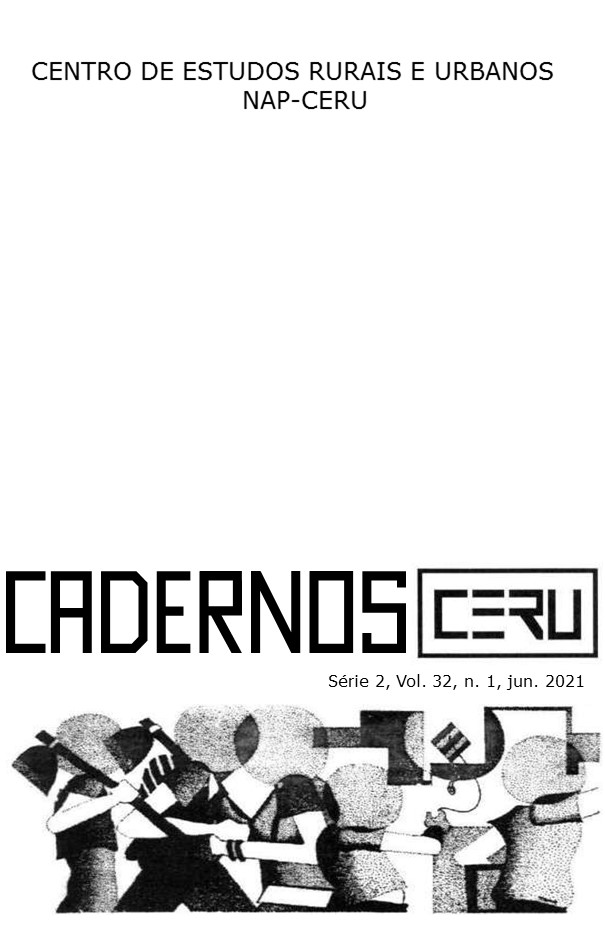Stefan Zweig’s silences: considerations from Hannah Arendt and Friderike Zweig
DOI:
https://doi.org/10.11606/issn.2595-2536.v32i1p83-98Keywords:
Stefan Zweig, Friederike Zweig, Hannah Arendt, Silence, Security, CriticismAbstract
Yesterday: Stefan Zweig: Memoirs of a European by Stefan Zweig, published in Stokcolm in Living in exil in New York, the two women wrote, respectively, Stefan Zweig: jews in the world of yesterday (1943) and Married to Stefan Zweig (1947), soon after the book was launched. Despite they had different points of view, both argued that in his book, the author’s silences about important facts of his life were due to his deep feeling of insecurity. The reading of those papers make it possible not only the understanding Stefan Zweig’s legacy but also This article goes back to Hannh Arendt’s and Friderike Zweig’s criticism on The World of allows to consider an actual issue concerning to what one should say or silence in the public sphere - from the perspective of the relationship of security and silence.
Downloads
References
ARENDT, Hannah. Stefan Zweig: Jews in the world of yesterday. In: KOHN, Jerome, FELDMAN, Ron H (Orgs.) The Jewish Writings. New York:Schocken Books, 2007, p.317-328.
ARENDT, Hannah. Rahel Varnhagen: judia alemã na época do romantismo. Rio de Janeiro: Relume-Dumará, 1994.
BARROS, Mabi. A verdade sobre o ‘país do futuro’, segundo Stefan Zweig. VEJA, 07 de julho 2017 s/p https://veja.abril.com.br/blog/e-tudo-historia/a-verdade-sobre-o-pais-do-futuro-segundo-stefan-zweig/Barros. Acesso em: 26 abr. 2021.
BOHUNOVSKY, Ruth. Entrevista com Klemens Renoldner. In: Pandaemonium, São Paulo, v. 18, n. 26, dez. 2015, p. 236-257.
DINES, Alberto. Posfácio: a biografia que se intromete na autobiografia. In: Autobiografia: o mundo de ontem. Memórias de um europeu. Tradução de Kristina Michahelles. Rio de Janeiro: Zahar, 2014.
DINES, Alberto. Morte no Paraíso. A Tragédia de Stefan Zweig. Rio de Janeiro: Rocco, 2004.
FRASER, Nancy. Rethinking the Public Sphere: A Contribution to the Critique of Actually Existing Democracy . In: Social Text, n. 25/26, 1990, p.56-80, Duke University Press; https://www.academia.edu/23242371/Nancy_Fraser_Rethinking_public_sphere. Acesso em: 30 abr.2021.
JARDIM, Eduardo. A Condição judaica segundo Hannah Arendt. In: Quatro cinco um, maio, 2017, p 29.
JARDIM, Eduardo. Stefan Zweig. Texto apresentado no Ciclo Por que Stefan Zweig? Centro Midrash Cultural, Rio de Janeiro, 28 de junho de 2017.
HEUR, Wolfgang. Hannah Arendt, Hamburg: Rowohlt Tachenbuch Verlag, 1987.
KERSCHBAUMER, Gert. Ein Nachwort. In: BERLIN, Jeffrey H;KERSCHBAUMER, Gert (Orgs). Stefan Zweig, Friederike Zweig“ Wenn einen Augenblick die Wolken weichen ”. Briefwechsel 1912-1942. Frankfurt a/M: S. Fischer Verlag, 2006, p. 399-406.
KLINGER, Diana. Escrita de si como performance. Revista Brasileira de Literatura Comparada, n. 12, 2008, p 11-30.
KOHN, Jerome. Preface. A Jewish Life: 1906-1975. In: KOHN, Jerome; FELDMAN, Ron H (Orgs.) The Jewish Writings. New York: Schocken Books, 2007p. IX-XXXI.
ROTH, Guenther. Marianne Weber and her circle. In: WEBER, Marianne, Max Weber. A Biography. New Jersey, Transaction Publishers, 1995, p. XV-LXI.
SPITZER, Leo. A jornada a scendente, a jornada para o mundo externo: assimilação no século da emancipação. In: Experiência Cultural Judaica no Brasil. Recepcão, inclusão e ambivalência.
GRIN, Mônica; VIEIRA, Nelson H.(Orgs).Rio de Janeiro: Topbooks, 2004, p 19-52.
WAIZBORT, Leopoldo. Georg Simmel e o judaísmo: entre a emanciapcão e a assimilação.
GRIN, Monica e VIEIRA, Nelson H. (Orgs). In: Experiência Cultural Judaica no Brasil. Recepção, inclusão e ambivalência. Rio de Janeiro: Topbooks, 2004, p.133-172.
ZWEIG, Friederike. Married to Stefan Zweig. Plunket Lake Press: Massachusetts, E-book Kindle, 2012.
ZWEIG, Stefan. Carta de 12 de maio de 1937 a Friederike Zweig. In: BERLIN, Jeffrey H, KERSCHBAUMER, Gert (Orgs). Stefan Zweig, Friederike Zweig“ Wenn einen Augenblick die Wolken weichen”. Briefwechsel 1912-1942. Frankfurt a/M: S. Fischer Verlag, 2006, p. 329-331.
ZWEIG, Stefan. Autobiografia: o mundo de ontem. Memórias de um europeu. Traducão de Kristina Michahelles Rio de Janeiro: Zahar, 2014.
ZWEIG, Stefan. O Mundo de Ontem – Recordações de um Europeu. Tradução de Gabriela Fragoso. Porto, Portugal: Assírio e Alvim, 2014.
Downloads
Published
Issue
Section
License

This work is licensed under a Creative Commons Attribution-NonCommercial-ShareAlike 4.0 International License.


